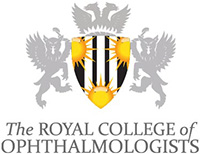Multi-source Feedback (MSF)
Whilst several of the other Work-Based Assessments (WpBAs) will require a trainer to assess the trainee’s attitude to the patient, most of the Attitudes, Ethics & Responsibilities (AER) and Communication (C) learning outcomes will be assessed using MSF. (AER8 is actually achieved by taking part in MSF.) The MSF is performed electronically via the online e-Portfolio. The process for obtaining MSF, which is required on an annual basis (at least), is as follows:
- The trainee identifies 11-15 people who can be approached to give feedback. The recommended combination of assessors, where applicable, should include:
2 consultant clinical supervisors
2 other trainees
1 senior nurse in the operating theatre (if the trainee has been performing surgery)
1 senior nurse in the out-patient department
1 other member of the out-patient staff (nurse/optometrist/orthoptist)
1 medical secretary who has been dealing with the trainee’s work
The remaining contributors can include further consultant supervisors, trainees, allied health professionals (nurses, orthoptists, optometrists), clerical/secretarial/administrative staff and it may sometimes be appropriate to include those with specific roles such as the college tutor, programme director and rota organiser.
- The trainee enters the details of these chosen assessors into the online e-Portfolio.
- The list is approved online by the trainee’s Educational Supervisor.
- The staff on the trainee’s list are contacted by email and asked to complete an online feedback form that will cover the appropriate areas of the curriculum. The trainee will not see individual responses.
- The results of feedback are collated and a report is produced.
- The MSF report is sent to the trainee’s Educational Supervisor who arranges to meet with the trainee to discuss the contents and any action required.
MSFs must be initiated at least 6-8 weeks in advance of the ARCP. All MSFs will close and generate a report either when all assessors have completed it or a month has elapsed, whichever occurs soonest. MSFs cannot be closed early, regardless of the ARCP date. A minimum of 11 responses are required to generate a valid report.
The following LO will be assessed using MSF:
| Learning Outcome (LO) | Typical question | Feedback likely from* | |
| PS21 SS3 HPDP2 |
Hand hygiene Asepsis X-infection |
Follows local guidelines on general cleanliness and avoidance of cross infection | MS, AHP |
| C1 | Rapport | Establishes a trusting clinical relationship with patients | MS, AHP |
| C2 | Listen | Listens effectively to patients | MS, AHP |
| C3 | Deliver | Provides information to patients in an appropriate and sensitive manner | MS, AHP |
| C5 | Consent | Obtains valid consent in an appropriate manner | MS, AHP |
| C6 | Breaking bad news | Communicates potentially upsetting information in an appropriate and sensitive manner | MS, AHP |
| C7 | Language | Makes allowances for difficulties in communication that may affect the patient | MS, AHP |
| C8 | Body language | Uses body language to good effect in communication | MS, AHP, S&C |
| C10 | Professionals | Communicates well with clinical and non-clinical colleagues | MS, AHP, S&C |
| C11 C12 |
Written Letters |
The doctor writes notes and dictates letters clearly | MS, AHP, S&C |
| C14 | Leave | Complies with local policies for the approval of leave and makes appropriate arrangements for cover | MS, AHP, S&C |
| AER1 | Compassion | Has a compassionate approach to patient care | MS, AHP |
| AER2 | Autonomy | Respects the patient’s wishes when making clinical decisions | MS, AHP |
| PS1 and AER3 | Considerate | Behaves in a considerate and sensitive manner towards all patients | MS, AHP, S&C |
| AER4 | Empathy | Shows appropriate empathy with patients | MS, AHP, S&C |
| AER5 | Confidentiality | Respects the confidential nature of clinical information obtained from patients | MS, AHP, S&C |
| AER6 | Limits | Works within the limits of her/his clinical competence | MS, AHP |
| AER7 | Help | Seeks help and advice from clinical colleagues when appropriate | MS, AHP |
| AER10 | Equality | Treats all patients equally, avoiding discrimination | MS, AHP, S&C |
| AER12 | Legal | Practises according to the GMC’s “Duties of a doctor” | MS |
| AER16 | Prioritise | Prioritises tasks appropriately, ensuring urgent and important matters are dealt with promptly | MS, AHP, S&C |
| AER16 | Stress | Copes well when under stress | MS, AHP, S&C |
* Feedback from:
- MS=medical staff
- AHP=allied health professional (nurse, optometrist, orthoptists)
- S&C= secretarial and clerical staff
